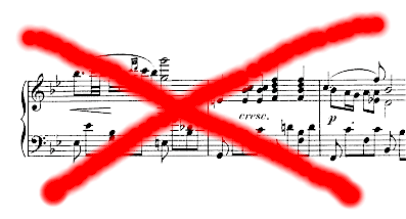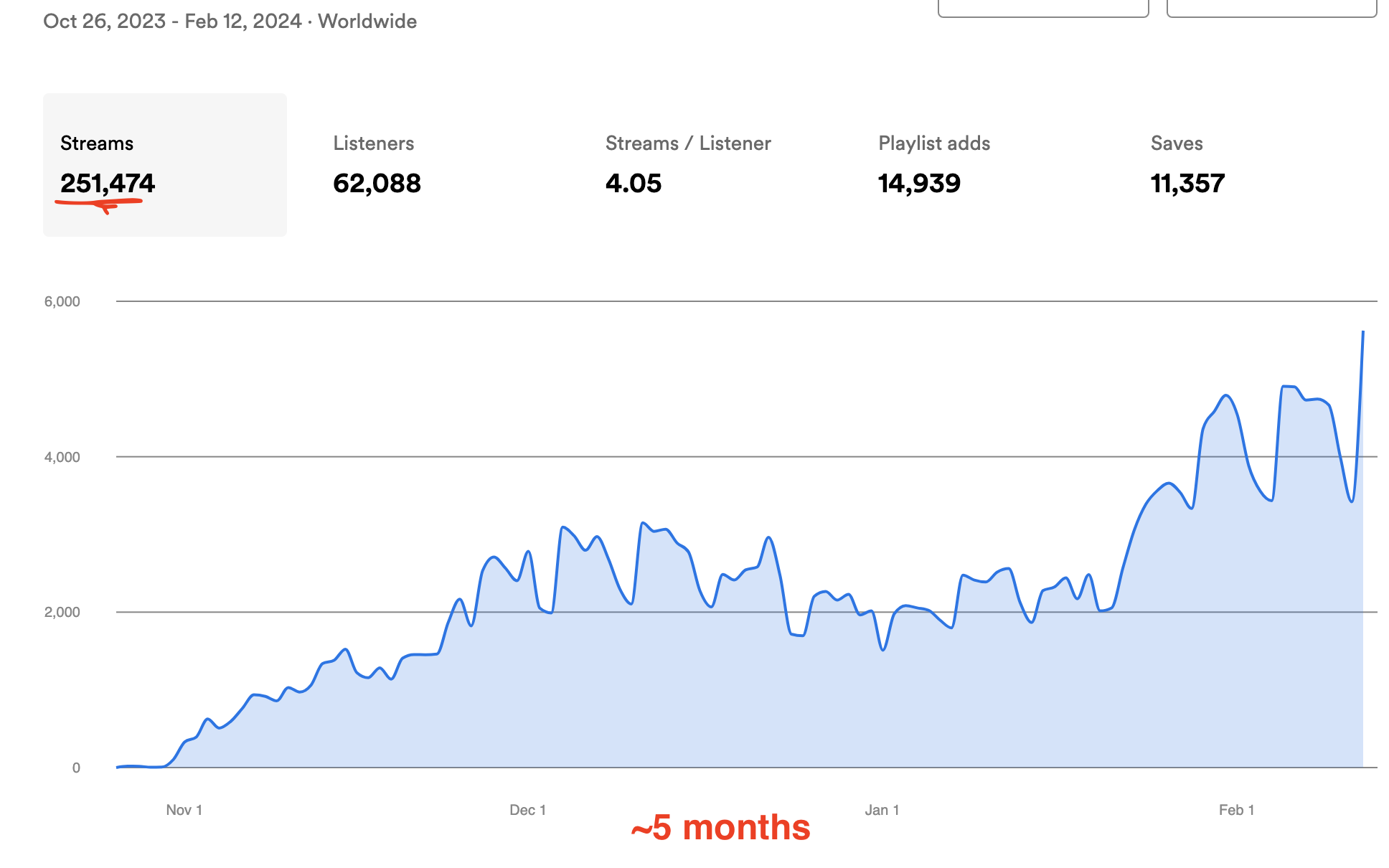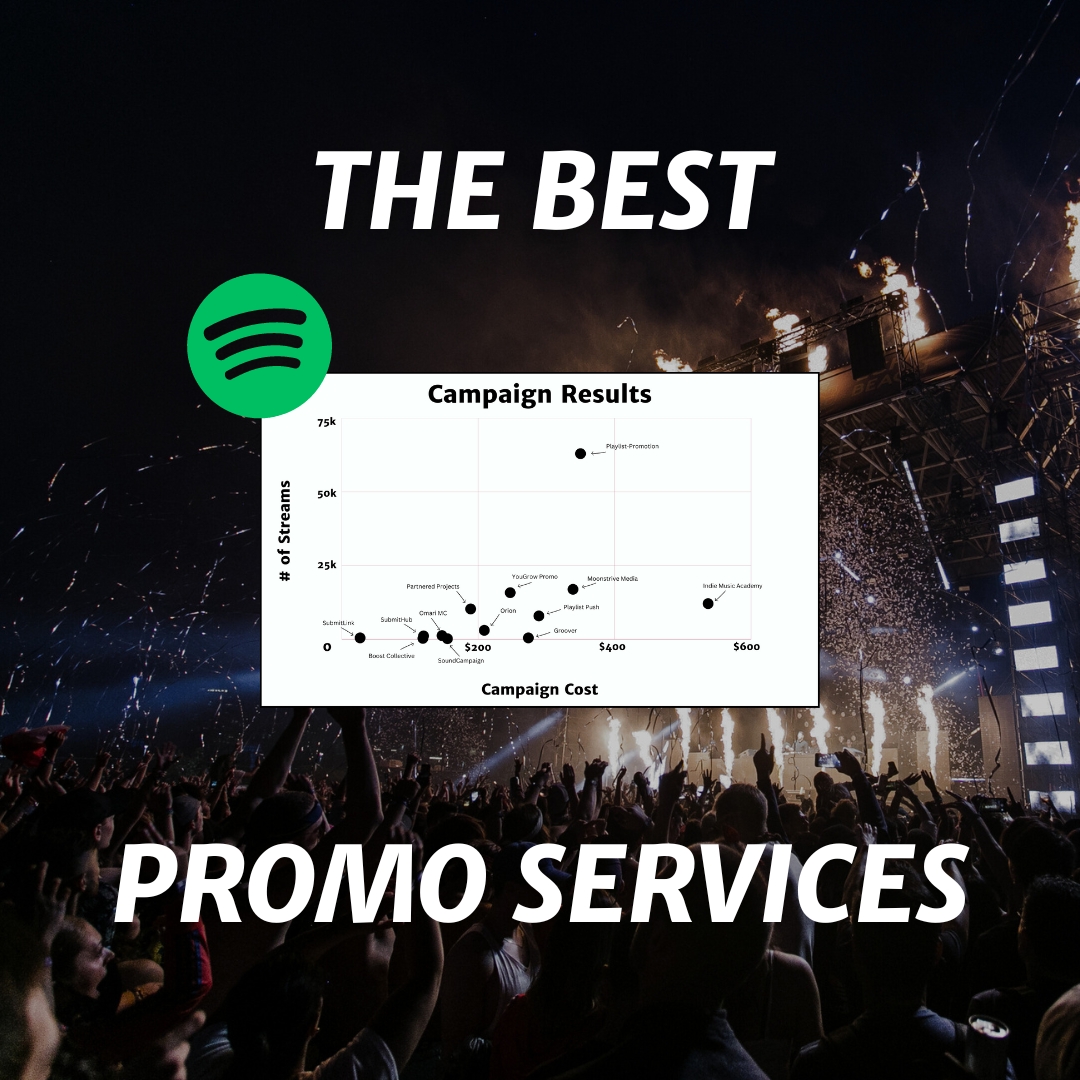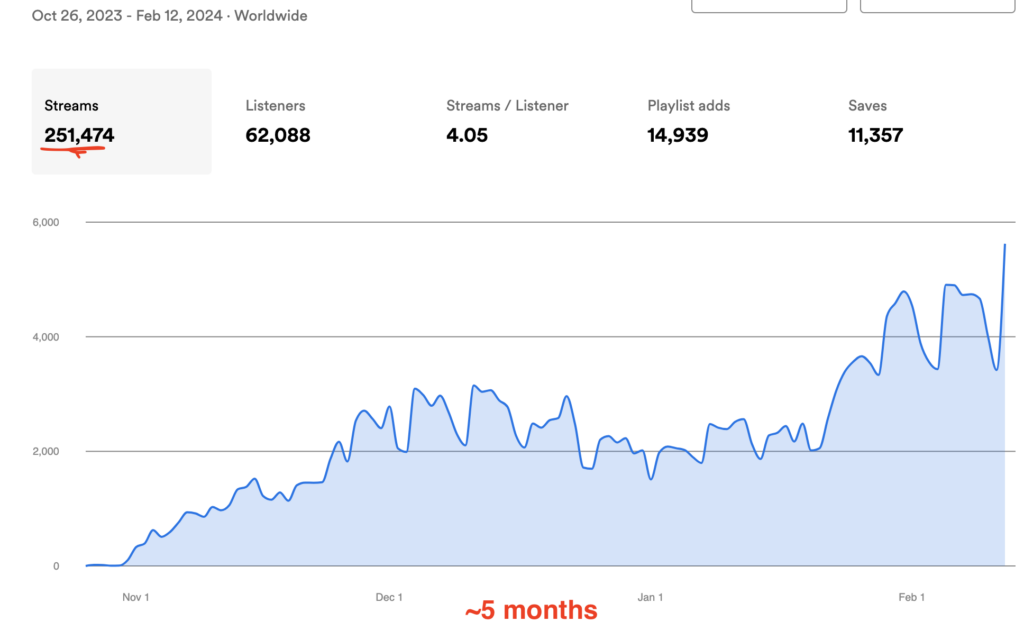Songwriting is freaking hard.
At least, it is for me. Maybe you’re in the same boat. Or maybe you write a hit a day, like Ed Sheeran, in which case you should probably stop reading this article and go work with Justin Bieber or something. For the rest of us, though, there’s good news: songwriting is a skill and it can be improved. You can learn how to write more and better songs.
If that’s one of your goals in 2023, these songwriting books can help. These authors have studied songwriting extensively. They’ve (almost all) written hit songs that you probably know. They can articulate the tips and techniques that make songs, you know, good – and they pretty effectively explain how to incorporate those things into your own writing.
Ready to get reading? Here’s the full list of the best books on songwriting to read in 2023:
- Melody in Songwriting: Tools and Techniques for Writing Hit Songs
- The Songwriter’s Workshop: Melody
- The Songwriter’s Workshop: Harmony
- How to Be a Hit Songwriter: Polishing and Marketing Your Lyrics and Music
- Writing Better Lyrics
- The Craft of Lyric Writing
- How Music Really Works : The Essential Handbook for Songwriters, Performers, and Music Students
- Tunesmith: Inside the Art of Songwriting
- Songwriters On Songwriting: Revised And Expanded
Want to get some structure and maybe an angle of attack first? I’m with you. I’ve broken my recommendations down into three categories.
First up: the best songwriting books for melody writing.
- Melody in Songwriting: Tools and Techniques for Writing Hit Songs
- The Songwriter’s Workshop: Melody
- The Songwriter’s Workshop: Harmony
Next, the best songwriting books for lyric writing.
- How to Be a Hit Songwriter: Polishing and Marketing Your Lyrics and Music
- Writing Better Lyrics
- The Craft of Lyric Writing
Finally, the best comprehensive books for songwriting:
- How Music Really Works : The Essential Handbook for Songwriters, Performers, and Music Students
- Tunesmith: Inside the Art of Songwriting
- Songwriters On Songwriting: Revised And Expanded
But take these however you’d like. A few caveats. First, these aren’t ranked in a particular order (in other words, I’m not saying Songwriters on Songwriting is my #1 or #9 – it’s just a really solid book). And then second, a bit of personal advice: books are helpful. But the best thing you can do to grow as a songwriter is to write songs. It’s like learning to fly a plane- reading the manual helps, but at some point you’ll have to take off. Yeah, that’s cheesy, and no, I’ve never flown a plane, but you get the idea.
Read these books, but also write a lot of songs.
All right. With all of that said, here are my nine best books for songwriters.
1. Melody in Songwriting: Tools and Techniques for Writing Hit Songs by Jack Perricone
First up is Jack Perricone‘s essential guide to melody in songwriting. Like quite a few of the books on this list, you know this one’s legit because it’s published by the Berklee press and it’s used in their songwriting classes. Here’s the description:
Melody is a subject too often neglected in the teaching of music. This unique resource gives melody the attention it deserves, and proves that melody writing is a skill that can be learned. Through proven tool and techniques, you will learn to write interesting melodies, how melodic rhythm influences rhyme, what makes harmony progress, and the many dynamic relationships between melody and harmony.
Pretty dope. Note that the content is fairly “heady.” It’s less an intuitive explanation of melody in songwriting and more of a technical how-to guide. In other words, it’s kind of dry and you won’t be able to get away with skimming if you want to get anything from it; in fact, you may have to read sentences twice to get the meaning.
But it’s absolutely helpful if you’re willing to focus in.
2. The Songwriter’s Workshop: Melody by Jimmy Kachulis
This one’s another hit from the Berklee Press, founded material from some of the school’s most popular songwriting courses and compiled by Jimmy Kachulis, a Berklee professor.
(I swear I’m not biased toward Berklee – they just crank out a ton of good material.)
I think Kachulis’ take is interesting:
I wrote the books and courses to give writers the same sort of daily training that instrumentalists get. Instrumentalists practice their instrument every day; if there’s a day that goes by they feel the difference. So I wrote these dozens and dozens of little exercises to give people the skills that they can practice on a daily basis.
The book is meant to be participatory, meaning there a lot of little prompts and assignments for practicing the techniques discussed. Most versions come with a CD, which has complementary audio material to help you practice (it used to be delivered via a CD and is now available online).
Overall, I’m a fan of this one because of its hands-on approach. You’ve got to write songs to get better at writing songs, and this book gets that.
3. The Songwriter’s Workshop: Harmony by Jimmy Kachulis
Our guy Jimmy is back, this time with a book on harmony.
Okay, I know this is technically one of my “melody-writing books,” but a) it’s good, and b) harmony writing is an indispensable part of melody writing. Some of my favorite melodies are my favorite melodies because of their harmonies. Hello, Beach Boys.
Anyway, here’s the brief:
Kachulis covers a variety of topics, including: colors of chords and keys, chord embellishments and progressions to enrich your palette of colors, dozens of ways to modify your harmonies and progressions, the most common chord progressions used in hit songs, and more.
Long-story-short, this is a great companion book to the Melody tome; you can’t go wrong getting both. Like Melody, it comes with audio accompaniments to help you practice.
4. How to Be a Hit Songwriter: Polishing and Marketing Your Lyrics and Music by Molly-Ann Leiken
All right – we’re into the first of the lyric writing books. This is also the first book on our list that deals with marketing music in addition to making it. Here’s the brief:
You’ve written what you think is a great melody, what you hope is a strong lyric, and you’ve cut what sounds to you like a killer track. But how do you know if it’s a hit? And what do you do with it if it is?
It’s pitched as being for “advanced songwriters,” but this is actually probably a level lower than the previous handbooks we’ve looked at. Molly knows her stuff, though. She’s a professional songwriting coach with serious credits to her name. From her about page:
Twelve of her clients are Grammy winners, seventeen more are Grammy nominees, and so far, with Molly’s help, 7519 other writers/artists just like you, have placed their work in movies, TV shows, video games, on CD’s, in commercials, and their tracks are downloaded all over the web.
So yeah, she knows what it takes.
5.Writing Better Lyrics (2nd Edition) by Pat Pattison
Ha. Pat Pattison. That’s a classic name.
Anyway, we’re heading back to school at Berklee (where Pat Pat teaches), this time for a deep-dive into lyric writing. As you might expect, this one’s a bit more academic. The brief:
This revised and updated 2nd Edition provides effective tools for everything from generating ideas, to understanding the form and function of a song, to fine-tuning lyrics.
It’s been in print for over two decades, so it’s stood the test of time, but it’s also revised and updated so it’s super fresh. If you’ve ever been stuck on ideas for songs, this is a helpful resource.
6. The Craft of Lyric Writing by Sheila Davis
This is another one that’s been around awhile for good reason. Sheila Davis was one of the original experts on pop song lyricism and this is one of the first mainstream books on the subject. It’s absolutely still relevant.
The brief:
How to combine songwriting talent with various techniques to create lyrics with commercial hit potential. This book also defines more than 100 literary and musical terms and supplies advice and quotes on the creative process from more than 50 experts in the music industry.
Fair warning: the quotes from experts are pretty dang entertaining.
This is the book for people who have lots of phenomenal ideas on themes but are having trouble communicating them in ways that aren’t a little lame. (If you want a peak at the introduction, it’s online here.)
7. How Music Really Works : The Essential Handbook for Songwriters, Performers, and Music Students by Wayne Chase
Ah, we’ve finally arrived at a school that’s not Berklee. Thank goodness. In fact, I don’t know this for sure, but my guess is that Wayne Chase and Berklee folks don’t get along too well, because Wayne Chase opens his book with this image:

In case you’re wondering what the heck that means, he just crossed out the whole idea that you need to know how to read music to write music. If you’re a Berklee traditionalist, you might be mad. If you’re most modern musicians, you’re probably already a fan of this guy.
This is our first general songwriting book, and, accordingly, it’s a pretty high level approach to understanding music. From the brief:
The 2nd edition focuses on how to seize the attention of listeners and move them emotionally. This book provides in depth, visually oriented, easy to understand text and graphics covering every important aspect of music making and lyric writing.
That’s right. Every important aspect.
If this book has a drawback, it’s that it’s a little broad.
But it’s packed with useful advice that’ll help you understand music better, including a bunch of helpful theoretical approaches that you don’t need to read music to understand. If you’re interested, Wayne’s posted the first six chapters on his site.
8. Tunesmith: Inside the Art of Songwriting by Jimmy Webb
Jimmy Webb is a bit of a legend: the guy started churning out hits when he was twenty one and never really stopped. His book is a bit legendary, too:
With a combination of anecdotes, meditation, and advice, he breaks down the creative process from beginning to end–from coping with writer’s block, to song construction, chords, and even self-promotion. Webb also gives readers a glimpse into the professional music world.
Yes, this book includes both meditation and self-promotion advice. Don’t worry, it’s presented in a way that’s self-aware and occasionally hilarious. And Jimmy’s overall philosophy on songwriting is priceless – if you’re looking for a framework to think about songs from, this book is it.
9. Songwriters On Songwriting: Revised And Expanded by Paul Zollo
The final book on the list is by Paul Zollo, who’s written about songwriting in publications ranging from Rolling Stone to American Songwriter to Oxford Press. But really it’s by Tom Petty. And Paul Simon. And Bob Dylan. And Lenny Kravitz. And Brian Wilson. (Hello again, Beach Boys). And pretty much anyone else you think is phenomenally good at songwriting.
In these pages, sixty-two of the greatest songwriters of our time go straight to the source of the magic of songwriting by offering their thoughts, feelings, and opinions on their art. Representing almost every genre of popular music, from blues to pop to rock, here are the figures that have shaped American music as we know it.
As you’d expect, these people have some good things to say. It’s worth your time (and it’ll take some of your time – the hardcover edition is 730 pages).
10. Daily Rituals: How Artists Work by Mason Currey
I kept this book for last for a reason: Daily Rituals is not a songwriting book per se, but it explains in detail the routines of hundreds of successful artists across all fields, from Agatha Christie to George Gershwin and Picasso. The result is an inspiring collection of anecdotes and ideas you can use to encourage your creativity: from choosing the right time to compose music or creating the perfect environment to enhance your workflow. Here’s the brief:
More than 150 inspired—and inspiring—novelists, poets, playwrights, painters, philosophers, scientists, and mathematicians on how they subtly maneuver the many (self-inflicted) obstacles and (self-imposed) daily rituals to get done the work they love to do.
By reading this book, you’ll realise how crucial it is to find inner balance and how the process of repetition is the true secret to honing your craft.
Bonus: 11. The Addiction Formula by Friedemann Findeisen
All right, one last bonus book if you’ve made it this far: The Addiction Formula. This book covers a lot of the ground that’s been tread before it; it purports to teach you the basics of what makes popular music popular. What sets it apart (and earns it a spot on this list) is the fact that it’s written entirely for the modern, DIY digital age.
Findeisen is a self-described “creative weirdo from the middle of nowhere,” which is to say he’s pretty dang relatable for most indie artists trying to write songs today. And he definitely gets modern music.
The 60s are OVER! Songwriting today is a very different experience than it was when the Beatles were on the air. By combining Arrangement, Harmony, Melody, Rhythm, Lyrics and Production in one deviously simple technique it is the first songwriting book that speaks to an all-writing, all-producing DIY generation.
Look, if you end up writing songs like the Beatles, Findeisen might complain, but I won’t. That said, The Addiction Formula is a nice addition to any collection of songwriting books for 2023. So we’ve included it in ours.
There you have them: the 10 (or 11) best songwriting books to read in 2023. Hope they’re helpful! (They will be). Now get reading.
And more importantly, keep writing.
(And last: if you’ve got any other book suggestions that have really helped you as a songwriter, feel free to throw them my way either in comments or via the contact page. I’m all about it.)









3 Responses
Big fan of Songwriters on Songwriting. Lots of great stories and viewpoints in that one and it can’t hurt to learn from the masters.
Awesome article and super helpful! I’m a big fan of the Writing Better Lyrics book, it really helped me step back and realize how much of a skill lyric writing was instead of getting stuck in that mindset of “I’m just not good at writing.” You’d mentioned how you just have to write to get better – while I don’t think they’re tied in any way, there’s a great companion workbook/journal to that book called “Practice: A Monthly Lyric Workbook” that’s been super helpful to actually put in the work, I’m loving it so far. It also has some poop jokes in it which I’m always into. 😉 The only place I can find it is on their website halfshy.com.
Haha, good stuff, Des! Definitely think practicing the work is as / more important than the theory.